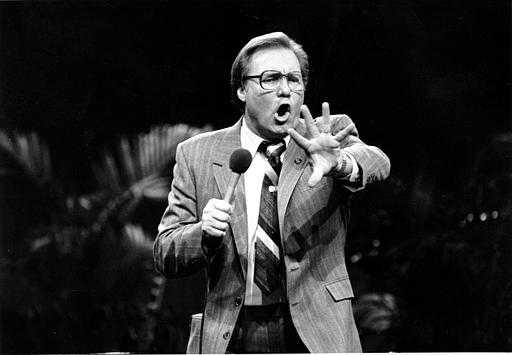In Jimmy Swaggart Ministries v. Board of Equalization of California, 493 U.S. 378 (1990), the Supreme Court ruled that California could impose the same use taxes on the sales of a minister as it could for other retailers without violating the free exercise or establishment clauses of the First Amendment.
Swaggart requested refund of taxes his ministry paid
Televangelist Jimmy Swaggart filed suit against the California Board of Equalization, requesting a refund of about $185,000 in taxes and interest his ministry had paid on goods sold within California. The petition was denied and made its way to the Supreme Court.
Court ruled that the taxes were consitutional
In the unanimous ruling, Justice Sandra Day O’Connor distinguished the taxes in this case from those in Murdock v. Pennsylvania (1943) and Follett v. Town of McCormick (1944). The Court regarded the taxes in both of those cases, which had been applied to door-to-door solicitors, as license taxes or flat taxes that applied regardless of the quantity of sales. Because those licenses were required as a condition to engaging in the activity in question, they constituted a form of prior restraint.
By contrast, California was taxing Jimmy Swaggart Ministries as it would any other retailer. Any burden that the tax imposed was minimal; moreover, paying the taxes did not violate the ministry’s “sincere religious beliefs” and thus did not constitute a heavy burden on their free exercise.
In response to concerns that the tax violated the establishment clause by leading to undue entanglement between church and state, O’Connor observed that collection of the tax did not require the state “to inquire into the religious content of the items sold or the religious motivation for selling or purchasing the items, because the materials are subject to the tax regardless of content or motive.”

